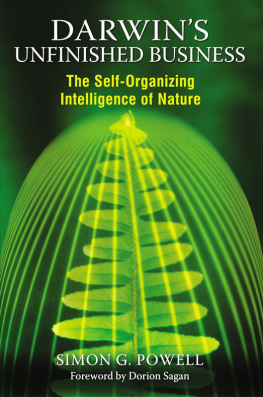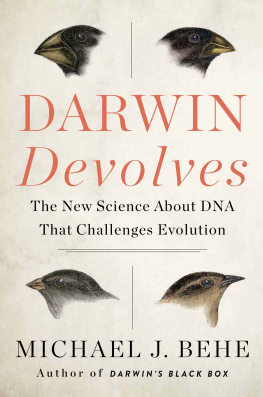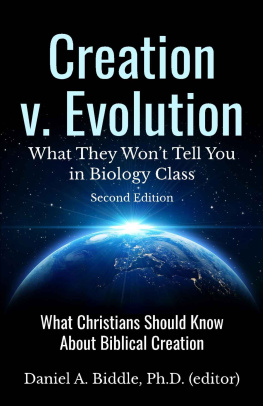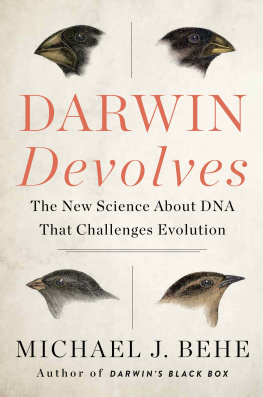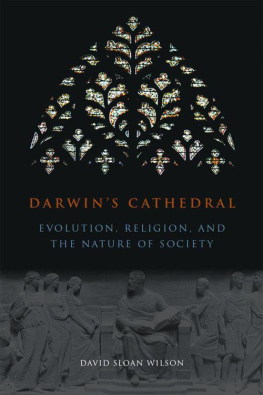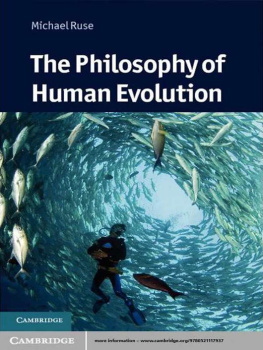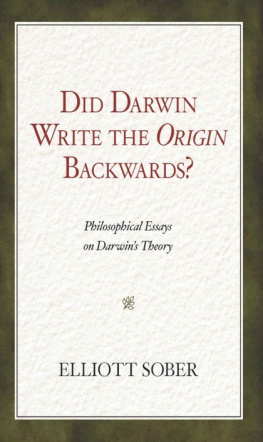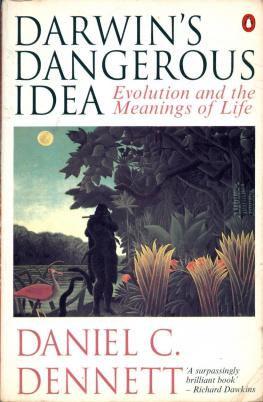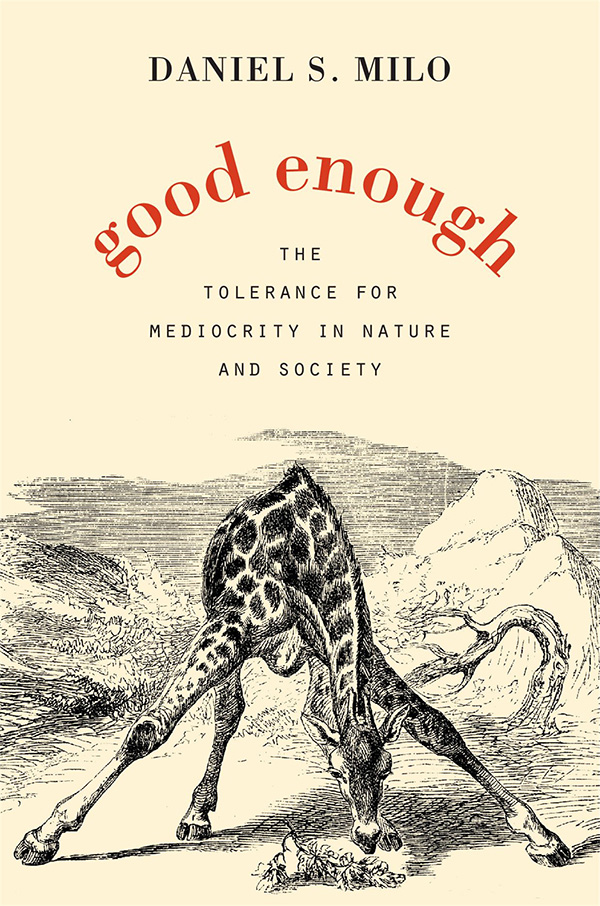Contents
Guide
Pagebreaks of the print version
good enough
The Tolerance for Mediocrity in Nature and Society
DANIEL S. MILO


Cambridge, Massachusetts
London, England
2019
Copyright 2019 by the President and Fellows of Harvard College
All rights reserved
Cover image: Giraffe/Private Collection/Bridgeman Images
Cover design: Jill Breitbarth
978-0-674-50462-2 (alk. paper)
978-0-674-24005-6 (EPUB)
978-0-674-24006-3 (MOBI)
978-0-674-24004-9 (PDF)
The Library of Congress has cataloged the printed edition as follows:
Names: Milo, Daniel S. (Daniel Shabeta), author.
Title: Good enough : the tolerance for mediocrity in nature and society /
Daniel S. Milo.
Description: Cambridge, Massachusetts : Harvard University Press, 2019. |
Includes bibliographical references and index.
Identifiers: LCCN 2018052620
Subjects: LCSH: Evolution (Biology) | Natural selection. | Social evolution. |
Imperfection.
Classification: LCC QH366.2 .M555 2019 | DDC 576.8dc23
LC record available at https://lccn.loc.gov/2018052620
In memory of my beloved,
Naomi Aviv Milo,
who knew
Contents
The world of things living has room, wide but not unbounded, for variety of living form and structure, as these tend towards their seemingly endless but yet strictly limited possibilities of permutation and degree: it has room for the great and for the small, room for the weak and for the strong The ways of life may be changed, and many a refuge found, before the sentence of unfitness is pronounced and the penalty of extermination paid.
DArcy Wentworth Thompson, On Growth and Form (1942)
Sigmund Freud wrote of three successive scientific outrages upon [humanitys] naive self-love. The first was inaugurated by Copernicus, who discovered that our earth was not the center of the universe, but only a tiny speck in a world-system of a magnitude hardly conceivable. The last was Freuds own: the revelation to the ego of each one of us that he is not even master in his own house. Between them was an idea that arrived upon the instigation of Charles Darwin, [Alfred Russel] Wallace, and their predecessors. This was the evolution of species by means of natural selection, which robbed man of his peculiar privilege of having been specially created, and relegated him to a descent from the animal world, implying an ineradicable animal nature in him.
The repercussions of two of those outrages were far-reaching. While the Copernican revolution resists popular appropriationperhaps because we are not capable of experiencing the earth as other than flat and the sun as other than rising and settingevolution and psychoanalysis mold our worldview. This despite the fact that few of us have opened The Interpretation of Dreams, and even professional biologists rarely read On the Origin of Species. Freuds key conceptssubconscious; Oedipal complex; libido; reality and pleasure principles; defense mechanisms; sublimation; narcissism; id, ego, and superegoare embedded in daily life no less than in therapeutic practice. Darwinism is similarly inescapable. Natural selection, struggle for survival, Malthusian competition, humanitys apish origin, and adaptation are all pervasive in thinking about nature and human communities.
In particular, Darwinism courses through the ethics of capitalism. The latters termsmaximization, optimization, competitiveness, innovation, efficiency, cost-benefit trade-offs, rationalizationdraw on the authority of Darwinian views of nature. Social Darwinism may be pass, but natural capitalism is fully alive. In the pages that follow, I will argue that Darwinism and neo-Darwinismthe mating of natural selection and genetics established in the mid-twentieth centuryhave a lot in common with neoliberalism. Nature knows what she is doing; in the market we trust. Homo economicus and animal economicus pursue the same goals and obey the same rules.
If evolutionary thought all too easily naturalizes capitalisms competitive zeal, it is because Darwin was only partly right. There is no doubt that all organisms evolved from a common ancestor. But Darwin strayed in attributing evolution overwhelmingly to natural selection. It is this view that inspired Herbert Spencer, the father of social Darwinism, to coin survival of the fittest. At Wallaces suggestion, Darwin himself eventually adopted this concept, too. It remains the basis of popular understanding of evolution today: everyone knows that nature is harsh and only the strong survive. But they are only partly right: nature is harsh sometimes; the strong survive often, but the weak stand a chance, too.
Both experts and the public join Darwin in overemphasizing natural selection, thereby distorting our sense of its role in both nature and humanity. Natural selection does occur, but there are nonadaptive mechanisms of change as well, such as genetic drift, geographic isolation, and the founder effect. None of these paths to survival rewards the hardest struggler or the best specimen. Their rewards are governed not by merit but by chance.
Genetic drift, the most prominent of these mechanisms, is the random change in the relative frequency of a gene variant, or allele, within a population. Genetic drift results in the survival not of the fittest but of the luckiest. One example is the northern elephant seal (Mirounga angustirostris). This seal experienced what evolutionary biologists call a bottleneck: an abrupt and drastic reduction in population size due to an environmental shock. By the late nineteenth century, the northern elephant seal had been harvested nearly to extinction for the oil derived from its blubber. Just a hundred or so specimens from Guadalupe Island, off Baja California, survived under the protection of the Mexican government. Those seals alleles persist in todays population not because they were selected but because they got lucky.
Geographic isolation occurs when a population is cut off from the other members of its species. It can lead to speciation by means of inbreeding within a narrowed gene pool. The isolated population has only so many variants in it, and only these can be passed down and recombined in the next generation. The result is divergence from the original population, as each is now reproducing a different set of alleles. The origin of the new species is not natural selection but chance.
Likewise, the founder effect occurs when a few members of a population strike out from their habitat and start a new community. But though these founders may initiate an enduring lineage, they are not necessarily the fittest of their kind, nor do they necessarily adapt to their new environments through the fixation of advantageous mutations. A famous example is the small group of pigeons that landed on the island of Mauritius ages ago, lost their ability to fly, gained twenty kilograms, and evolved into Raphus cucullatus, also known as the dodo. The origin of this species was due to chance.
Specialists understand all this, so they avoid using survival of the fittest. And they know that natural selection does not cull every useless, exaggerated, and inefficient mutation, preserving only the best. Yet in 2007, Richard Dawkins defended the image of nature as a miserly


